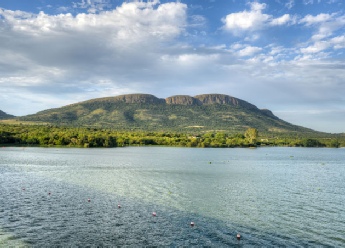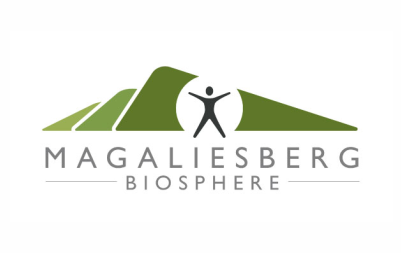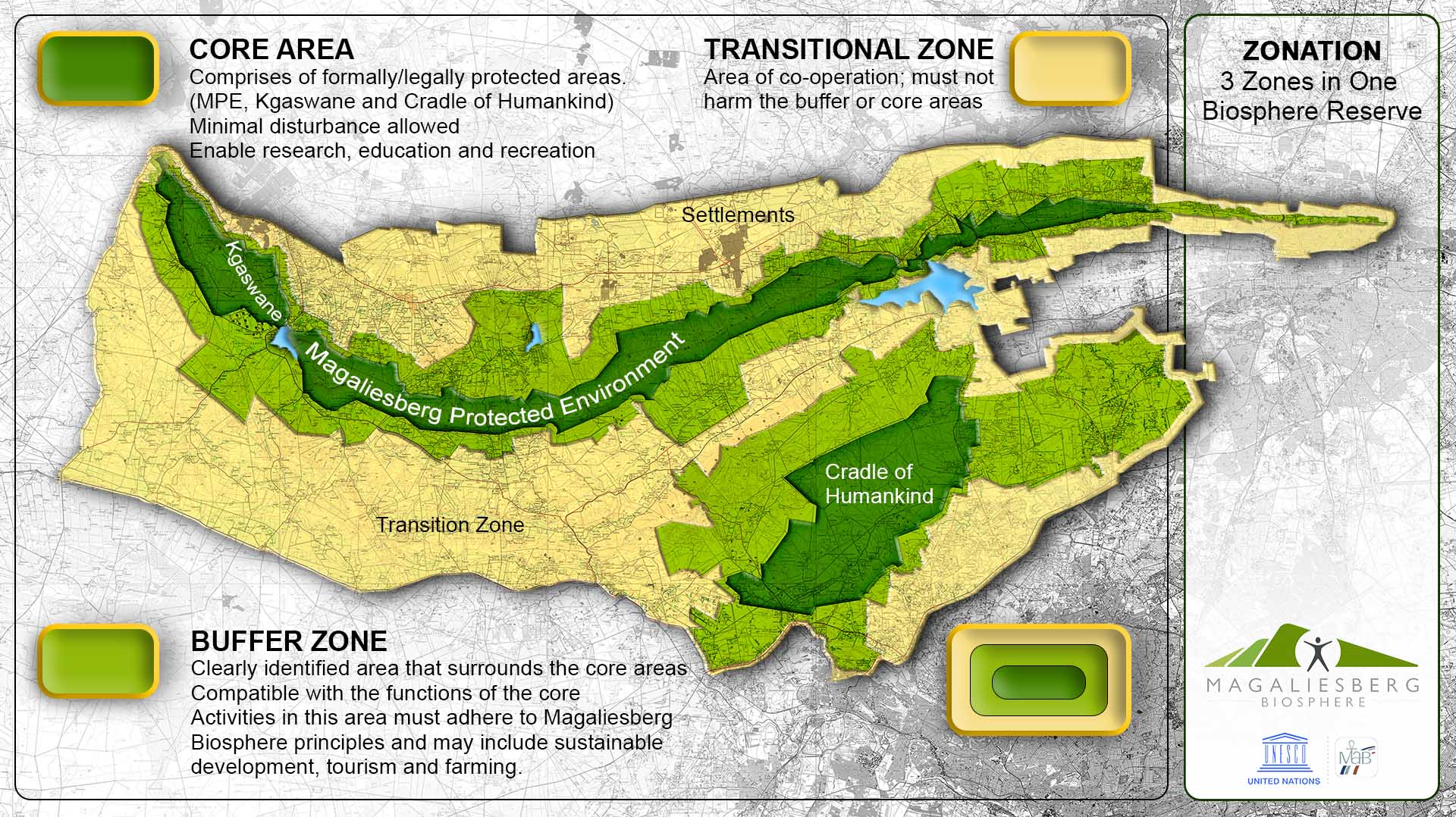Magaliesberg Biosphere
The rocks of the Magaliesberg bear the ripples of tides, which lapped the shore more than 2 000 million years ago.

Introduction
The Magaliesberg Biosphere (MB) straddles Gauteng and North West Provinces. The rocks of the Magaliesberg bear the ripples of tides, which lapped the shore more than 2 000 million years ago. The MB includes the Cradle of Humankind World Heritage Site (inscribed by UNESCO in 1999) and the Magaliesberg Protected Environment as part of its core zone. It lies at the interface of two great African biomes – the central grassland plateaux and the sub-
Stats
UNESCO Designation: 2015
Management Entity: Magaliesberg Biosphere Reserve Non-
Total Area: 357 437 ha
Core Zone: 58 125 ha
Buffer Zone: 109 430 ha
Transition Zone: 189 882 ha
Contact
Email: hello@magaliesbergbiosphere.co.za
Tel: +27 (0)83 236 6978
Website: www.magaliesbergbiosphere.org.za
Flagship Projects
The MB is situated close to the largest conurbation in South Africa. Creating awareness of the ecological, cultural and aesthetic value of the Biosphere Reserve is a priority. On the western slopes of the Magaliesberg is the Tlholego Eco-
The Centre produces a variety of upcycled pots and jewellery, energy-saving cooka-


